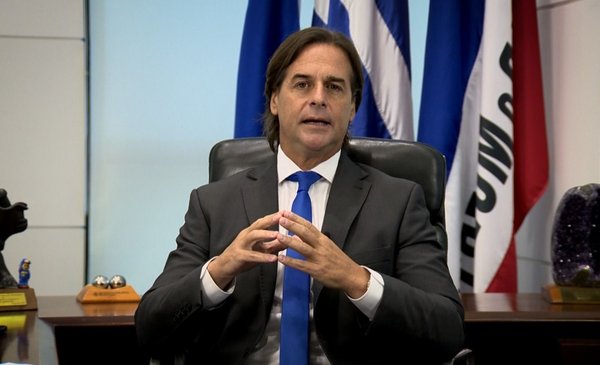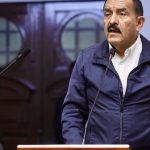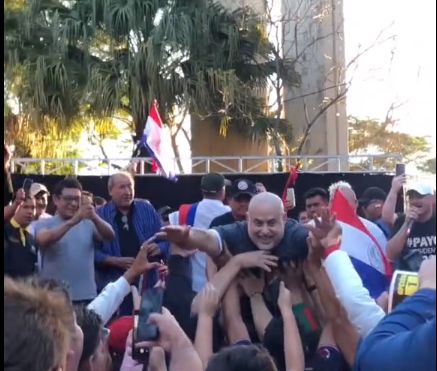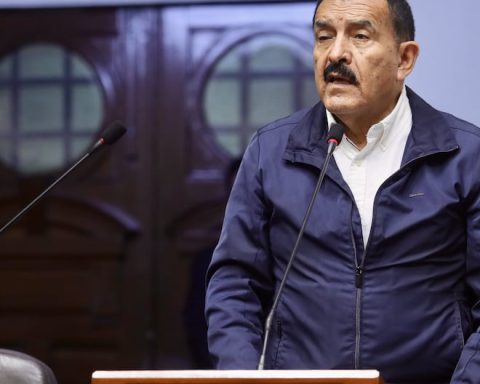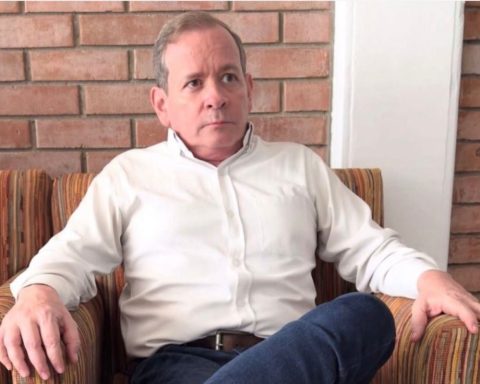He Republic President Luis Lacalle Pou celebrated this Thursday the approval in Parliament of the pension reform, which will now return to the Executive Power for its promulgation.
The social security reformflagship of the government of Luis Lacalle Pou, was approved by 17 votes in 28 in the Chamber of Senators, with the support of the legislators of the government coalition and the opposition of the Broad Front.
“I could not look them in the eye later, having enough majorities and the opportunity to do things and having let it go. I calmly tell them that there is reform and rest assured that –if there is reform– there is a future“, assured the president from his office in the Executive Tower.
the full message
Minutes after the arduous parliamentary process that the bill had had ended, the president published a message on his networks explaining the importance of this approval for the government.
“The social security reform has just been approved and it seemed appropriate to have these minutes to talk with you,” says Lacalle Pou at the beginning of the video.
The president insisted on the message that the reform was “urgent” and “necessary“. And He listed several reasons, among them the life expectancy –increasingly longer– and the low birth rate that Uruguay has. “To be clear: the asset-liability relationship has been decreasing, generating risks,” he said.
“The numbers we have today clearly indicate that more and more Uruguayan taxes are used – they are needed – to pay for the retirement system. The contributions directly involved to social security are not enough to sustain this systemwhich has been characterized for being very supportive,” explained the president.
Lacalle located the first milestone in the drafting process of the retirement reform in the Law of Urgent Consideration, which he stressed was “popularly ratified” and which created the Commission of Experts on Social Security, led by Rodolfo Saldaínmain editor of the reform that ended up being approved this Thursday.
In that commission –and in the document that was born from there– the president placed the first “division” that generated the topic. “The opposition did not follow the recommendations,” the president recalled about the position that the Broad Front would later maintain, in addition to the PIT-CNT.
Continuing with his story, the president pointed out that the government coalition decided go ahead with the reform, despite the discrepancies. “I attach great importance to the work of Parliament, because all the political parties reside there. There is the total and general representation of all the voters in the country,” he said.
And he described the parliamentary discussion as a process in which “things are added and removed“. It was in Parliament – precisely in the discussion in the Deputies commission – that the negotiation between the coalition partners became tougher, with the refusal first of the Cabildo Abierto to vote on the project and of the Colorado Party later.
Lacalle described those disagreements as “logical discussions in a coalition of five political parties“.
“There is an issue that is intrinsic to me: assuming. When the government assumes, it is not only that it enters the ministries, the autonomous entities, decentralized services, the Executive Tower, this office. It assumes the responsibility, assumes the burden And time is passing and one has to take care of the commitments and the needs of the Uruguayans”, he assured.
